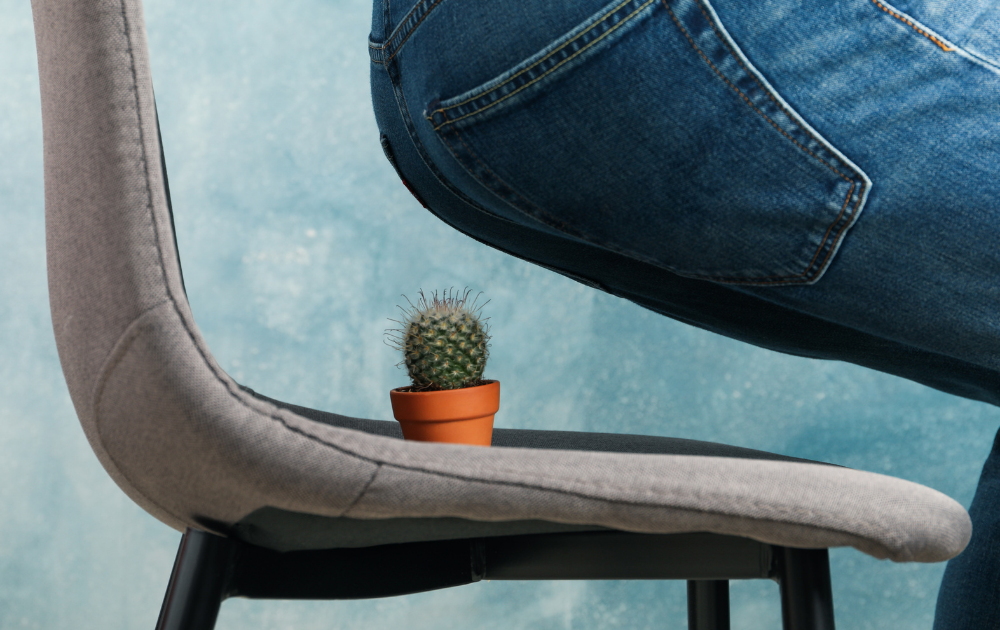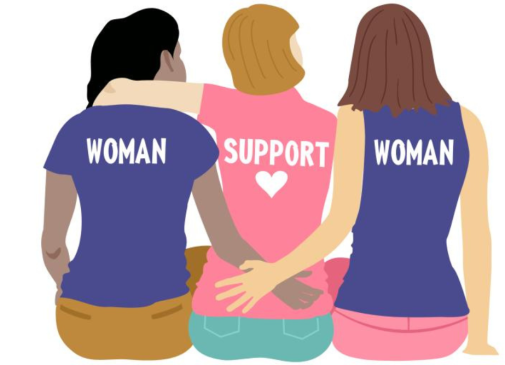
Having uterine fibroids can be a pain in the butt….literally. Hemorrhoids are swollen, inflamed veins that are located in and near the rectum that can cause pain or bleeding. There are both internal and external versions of hemorrhoids, which can cause varied symptoms.
Hemorrhoids are one of the most common rectal conditions affecting over 1 in 20 people living in the U.S. As you get older, they become more prevalent affecting close to half of all adults over the age of 50.
Despite how common they are, many people consider hemorrhoids a “taboo” subject. When it comes to fibroids and hemorrhoids, it’s important to understand what can cause them and how to treat them effectively.
What Causes Hemorrhoids?
One of the most common causes of hemorrhoids is straining and constipation when going to the bathroom. However, anything that increases pressure on your belly or lower extremities can lead to swollen, inflamed veins near your anus or rectum. Hemorrhoids can be caused by:
- Straining while lifting heavy objects
- Weightlifting out of your comfort zone
- Weight gain
- Pregnancy
- Pushing too hard during a bowel movement
- Uterine fibroids or other growths that put pressure on the bowels
People who are overweight, are pregnant, or eat a low-fiber diet are often at an increased risk for developing either internal or external hemorrhoids.
Can Uterine Fibroids Cause Hemorrhoids?
Yes, depending on their size and location uterine fibroids can often lead to painful hemorrhoids. If fibroids grow too large or outside of the uterus, they can put excess pressure on the bowels and rectum. This constant pressure can lead to constipation and back pain.
As we mentioned above, chronic constipation can lead to the development of hemorrhoids within or near the rectum. It’s important to eat foods rich in fiber to combat your constipation and make it easier to use the restroom without straining. However, increasing your fiber intake may not make a difference if your fibroids put too much pressure on the bowels. It’s important to track your symptoms and consult a fibroid specialist if you’re noticing these issues.
Can Fibroids Cause Bleeding During Bowel Movements?
The short answer is yes, they can. If you’ve noticed bleeding during bowel movements, it could be that you have an internal hemorrhoid instead of an external one. Even though they may not be as painful as external hemorrhoids, internal veins tend to bleed. Internal hemorrhoids may bleed during straining or pressure; this happens when the surface of the inflamed vein becomes damaged.
Fibroids don’t directly cause bleeding during bowel movements because they grow inside or on the uterus. However, they can cause severe constipation which could lead to an internal or external hemorrhoid in the rectum. Since the uterus, intestines, bladder, and rectum are all in the pelvic region of your body, fibroids can impact any one of these vital organs.
How Do Fibroids Cause Constipation?
If fibroids become too large or grow in areas where they could impact other organs like the intestines and rectum (subserosal fibroids) they can cause constipation. If there is excess pressure placed on the rectum, regular bowel movements may become difficult.
Chronic constipation leading to straining can cause both internal and external hemorrhoids. Even though internal hemorrhoids may not be painful, they often bleed. External hemorrhoids usually don’t bleed but can be painful or become prolapsed (when they extend outside of the anus).
Can You Leave Fibroids and Hemorrhoids Untreated?
Even though both fibroids and hemorrhoids are not fatal, they both cause uncomfortable, inconvenient symptoms. Most cases of hemorrhoids can be treated at home without medical intervention. However, if you’re experiencing any of the following you should seek out a physician immediately:
- Rectal bleeding that won’t stop
- Severe pain
- Hemorrhoids won’t clear up after using over-the-counter creams or other remedies
- Stool that look maroon or red-brown
- Severe constipation
- Dizziness or weakness
Untreated hemorrhoids can also lead to thrombosed external hemorrhoids which occur when a blood clot forms inside of the vein. If the blood flow is obstructed by the clot, it can cause painful swelling of the anal tissues. Thrombosed hemorrhoids are not dangerous, but they can become ulcerated if left over time.
In comparison, over-the-counter medications to treat fibroids don’t exist. A doctor may prescribe you NSAIDs like ibuprofen or acetaminophen to relieve pelvic pain, but there aren’t many other options. Therefore, it’s important to consult a fibroid specialist about your non-surgical treatment options. Fibroid symptoms are considered to be progressive, getting worse over time. Getting a clear diagnosis and deciding on an effective solution are great first steps when it comes to treating your fibroids. Similar to hemorrhoids, women with fibroids often experience numerous symptoms; however, they are considered far more severe and life-altering than hemorrhoids.
Take our FREE symptom checker and learn about associated symptoms
Leaving any medical issue untreated is never advised. See your doctor or a fibroid specialist to learn more about treatment options for fibroids and rectal pain.
What Does Severe Fibroids and Constipation Pain Feel Like?
Fibroid pain is often debilitating, affecting all areas of a woman’s life. Cramps are often so severe, NSAIDs don’t manage the pain as well as they do for regular menstrual discomfort. Depending on the size and number of fibroids within the uterus, the pelvic area might feel full, enlarged, or heavy. Additionally, fibroids can cause back and leg pain if they press on sensitive nerves.
In comparison, hemorrhoid pain can range anywhere from little to no pain, to itching or burning. Wiping or going to the restroom might be uncomfortable and feel “hot”. Experiencing sharp abdominal pain is also associated with constipation and hemorrhoids. Both fibroids and rectal pain is uncomfortable and can be treated easily with the right measures.
How To Treat Fibroids and Hemorrhoids Without Surgery
Fibroids and hemorrhoids can be difficult to live with, interfering with your daily routine. Dealing with painful bowel movements and bleeding caused by fibroids can feel like an endless cycle of discomfort. Unfortunately, even if your hemorrhoids heal on their own, they’ll most likely return if your fibroids aren’t treated beforehand.
Since both fibroids and hemorrhoids are not considered life-threatening, it makes sense you’d want to avoid an expensive, risky surgery. Thankfully, there are non-surgical fibroid treatments like uterine fibroid embolization (UFE) that can effectively shrink your growths and reduce painful symptoms. UFE works by stopping blood and nutrients from reaching fibroid tumors. Over time, these growths will reduce in size and eventually die off completely so they can be naturally reabsorbed by the body. Reducing the size of your fibroids will relieve the pressure on your bowels and rectum. Consequently, you will experience less frequent hemorrhoids caused by fibroids.
Don’t wait for your fibroids and hemorrhoids to worsen. If you’re ready to end the cycle of fibroids and constipation pain, the Fibroid Fighters Foundation can help. We are here to help you start your journey to a more active, healthy life without fibroids and hemorrhoids. The Fibroid Fighters Foundation works to raise awareness about non-surgical fibroid treatment options as well as provide women with the information they need to make important decisions about their health. Start your journey today by calling us at 855-455-5262 or contacting us conveniently online.







